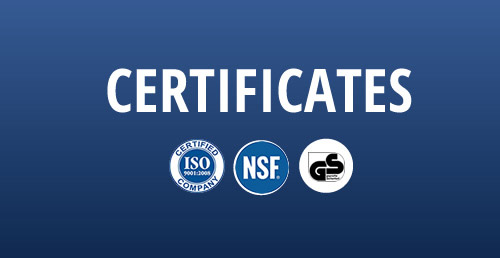Understanding the Properties and Applications of Chemical Anchor Bolts in Construction
Chemical Anchor Bolts A Comprehensive Overview
Chemical anchor bolts are essential components in construction and engineering applications, providing secure and durable fastening solutions for various structures. These bolts, designed to secure loads in concrete and masonry, use a chemical adhesive to bond the bolt to the substrate, offering several advantages over traditional mechanical anchors. This article explores the composition, advantages, applications, and installation techniques of chemical anchor bolts.
Composition and Functionality
Chemical anchor bolts are typically composed of a metal rod or bolt, which is coated in a chemical adhesive that hardens once injected into the hole drilled in concrete or masonry. The adhesive usually consists of a two-part epoxy or polyester resin, which cures after being mixed. This bond formed between the bolt and the surrounding material provides a strong and reliable hold, capable of withstanding significant forces.
Advantages
1. High Load Capacity One of the primary advantages of chemical anchor bolts is their high load capacity. The chemical bond created by the adhesive allows for exceptional resistance to shear and tensile forces, making them suitable for heavy-duty applications.
2. Versatility Chemical anchors can be used in various substrates, including solid concrete, hollow blocks, and brick. This versatility makes them an ideal choice for different construction scenarios.
3. Reduced Stress Concentration Unlike mechanical anchors that rely on friction, chemical anchors distribute loads more evenly across the bonded area. This significantly reduces stress concentration points, minimizing the risk of failure.
4. Corrosion Resistance Many chemical anchor systems are designed for durability and include materials resistant to corrosion, making them suitable for outdoor and harsh environments.
5. Temperature Resistance Chemical anchors can perform well under various temperature conditions. Depending on the resin used, they can maintain their bonding strength even in extreme temperatures.
Applications
Chemical anchor bolts find applications in numerous fields, from residential to industrial construction
. They are commonly used in- Structural Elements Securing beams, columns, and trusses in buildings and bridges.
chemical anchor bolt

- Masonry and Panel Attachments Fastening precast panels, curtain walls, and other architectural elements.
- Equipment and Machinery Anchoring heavy machinery, shelving, and industrial equipment to concrete floors.
- Renovation Work Providing robust anchoring solutions for retrofitting or renovating existing structures.
Installation Techniques
The installation process of chemical anchor bolts involves several critical steps to ensure optimal performance
1. Surface Preparation The hole must be clean and free of dust, debris, or moisture. A blowout pump or brush can be used to achieve this.
2. Drilling A correctly sized drill bit is used to create a hole in the concrete or masonry structure. The depth and diameter of the hole depend on the specifications of the anchor bolt being used.
3. Injecting the Adhesive The chemical adhesive is often delivered through a special nozzle into the hole. It's essential to fill the hole correctly, allowing for the bolt to be inserted.
4. Inserting the Bolt After injecting the adhesive, the bolt is inserted into the hole and twisted to ensure proper mingling of the adhesive.
5. Curing Time The adhesive requires time to cure before the anchor can be subjected to load. This can vary significantly based on environmental conditions and the adhesive used.
Conclusion
Chemical anchor bolts are a crucial innovation in fastening technology, providing reliable solutions for securing structures in a variety of settings. Their high load capacity, versatility, and resistance to environmental factors make them a preferred choice among engineers and construction professionals. As construction techniques and materials continue to evolve, the use of chemical anchor bolts will likely expand, offering even more opportunities for secure and innovative designs.
-
Weatherproof Plastic Expansion Anchors for OutdoorNewsJun.06,2025
-
Sustainability in the Supply Chain: Eco-Friendly TEK Screws ProductionNewsJun.06,2025
-
Load-Bearing Capacity of External Insulation FixingsNewsJun.06,2025
-
Double Head Bolts: Enhancing Efficiency in Industrial MachineryNewsJun.06,2025
-
Corrosion Resistance in Chipboard Screws: Coatings for Wholesale DurabilityNewsJun.06,2025
-
Butterfly Toggle Bolts : Enhancing Structural ResilienceNewsJun.06,2025
